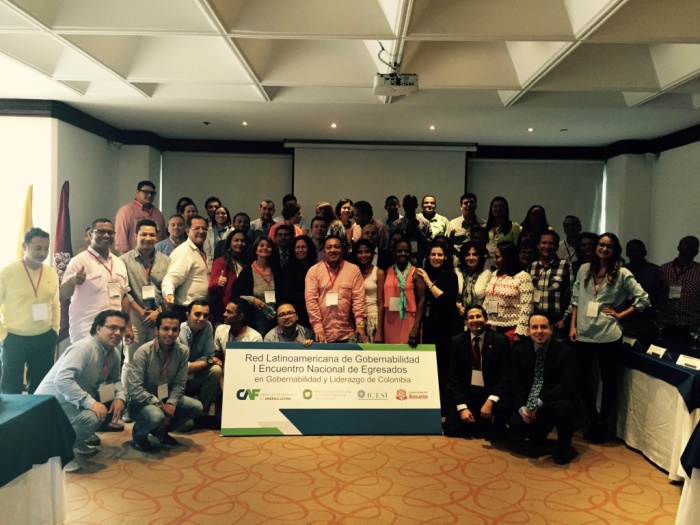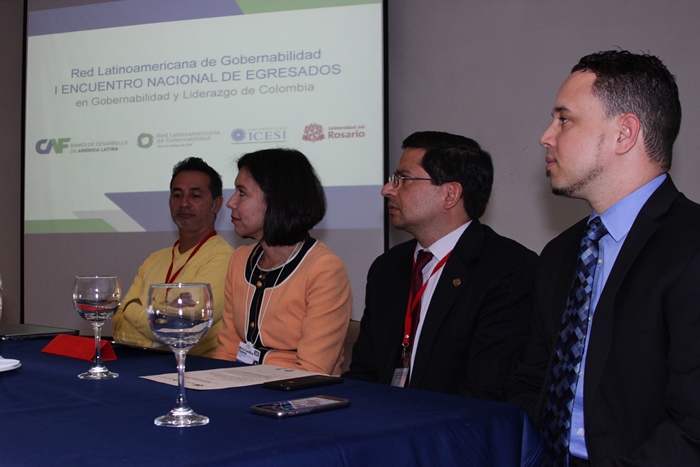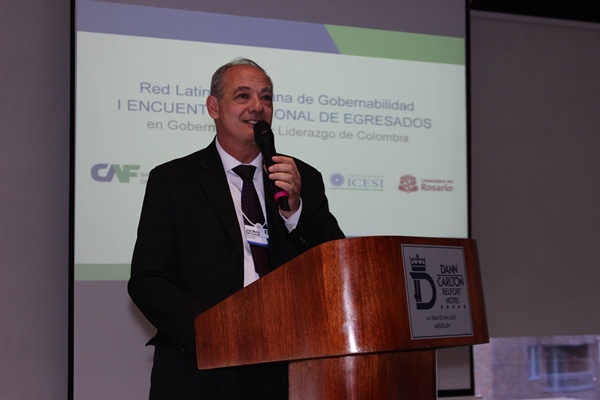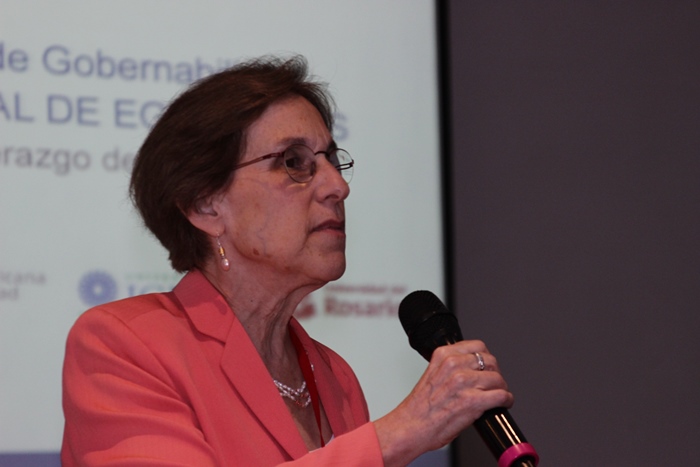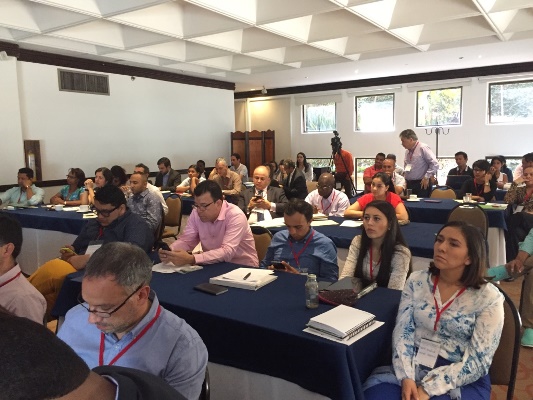Innovation and peace, key for the territorial development of Colombia
Graduates from CAF's Governance and Leadership Programs in Colombia met at the World Economic Forum in Medellin to discuss the best strategies to build peace
Fifty graduates from the Governance, Political Management, and Public Management, and Leadership for Change Programs in Colombia met in Medellin to discuss about the importance of this academic training experience and exchange opinions regarding subjects such as innovation and peace building strategies during the I National Meeting of Graduates from the Governance and Leadership programs in Colombia, organized by CAF with the support of the Universidad del Rosario and the Universidad ICESI.
The Meeting coincided with the World Ecomomic Forum (WEF), also held in Medellin.
Given the peace process that Colombia is undergoing, the programs' graduating projects were developed from specific proposals to improve and strengthen Territorial Development Plans as essential instruments of good public management.
Cynthia Arzon, Director of the Wilson Center's Latin American Program, took a retrospective look at the main peace processes in different countries of the region, sharing their thoughts regarding the main causes of armed conflicts and the most noteworthy elements of the processes when negotiations started. According to the expert, the State must facilitate meeting spaces, and the civil society must support these negotiations.
José María Del Corral, World Director of Scholas Ocurrentes, shared the ideas of the educational revolution started by Pope Francisco with the participants. This revolution seeks to strengthen social cohesion through the inclusion of young people to productive life. Del Corral stated, " From Scholas we promote programs to develop values focused on peace; this peace does not only belong to the Catholic faith; it has to be understood as a universal value that is also built through a change in education. The change cannot be delayed, we must create this sense of urgency and start today, even if at a small scale, to recover a comprehensive work with youths from all spheres, including governmental, the media, family, and institutions".
The Meeting included the participation of the Government of the city of Medellin, represented by Tatiana García Echeverry, Deputy Director of Planning of Medellin, and Carmen Fernández, consultant in Territorial Planning in the Ibero-American Area, who presented the innovating guidelines of the Territorial Zoning Planning of Medellin, developed jointly with the civil society through the "Urban Dialogues" as instruments for the construction of more peaceful, fair, and entrepreneurial cities.
Emil Rodríguez Garabot, Institutional Development Executive at CAF, stated, "Strengthening the management of local governments through the training of individuals who have an influence on the transformation of our cities, that is, politicians, leaders, and public managers, is the main asset of Colombia's peace process, so these assets cannot be broken apart from the space and institutions where these acquired capacities will be established".
CAF's more recent content

CAF, ECLAC, IDB and PAHO Promote Sustainable Development in the G20
The Regional Organizations of the Americas congratulate Brazil on its successful G20 Presidency, highlighting its leadership on key issues such as poverty, governance, and climate change. They also reaffirm their commitment to actions that promote equity and development in the region.
Urgent Call for Action to Safeguard Caribbean SIDS at CAF Symposium
As the global community grapples with the escalating climate crisis, Caribbean Small Island Developing States (SIDS) are running out of time to secure critical investments and support needed to strengthen their economies and protect vulnerable communities from the intensifying impacts of climate change. With the window to take decisive action rapidly shrinking, CAF - Development Bank of Latin America and the Caribbean, in partnership with the Commonwealth Secretariat and the Antigua and Barbuda High Commission, brought together key stakeholders for a symposium in London to address the critical vulnerabilities Caribbean SIDS face.
